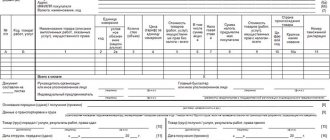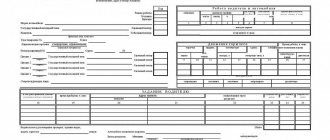Even if you really love your job, you are unlikely to want to stay at it longer than necessary. Or do you still want to for certain reasons? What if the employer asks or insists on this?
When is it unacceptable to engage in overtime work, and when is it acceptable? In what cases is it impossible to refuse a “tempting offer”? How to pay for additional labor and document it correctly?
How to attract an employee to work overtime on a business trip ?
What is overtime work?
Each enterprise has a certain working regime, which provides for the duration of work and rest. It is reflected in internal regulations. The length of the working day is strictly regulated by the labor protection law, and the timing of work shifts is also determined. Sometimes a general record of working hours is kept, accumulated over a week or month. Any work beyond these limits, initiated by the employer, is called overtime .
The Labor Code of the Russian Federation talks about the nuances of exceeding the established temporary work standards in Art. 99, and remuneration for such work is paid in accordance with Art. 152.
How to pay for overtime work on weekends and holidays ?
Overtime work at night
Let me remind you that working hours from 22:00 to 6:00 are considered night hours and are paid at an increased rate (Article 154 of the Labor Code of the Russian Federation).
The Decree of the Government of the Russian Federation dated July 22, 2008 No. 554 “On the minimum increase in wages for night work” states that the additional payment for night work is 20% of the hourly tariff rate or salary for each hour of such work.
Payment for night hours can be established differently, but this must be secured by a collective agreement, local regulation, or employment contract. If an employee worked overtime at night, then they should be paid both as night and overtime.
The Ministry of Labor provided explanations on how to properly pay for overtime work at night in letter No. 14–1/OOG-7353 dated 09/04/2018.
Examples of overtime calculation:
- The employee works in shifts. Shift is 12 hours, first from 8:00 to 20:00, second from 20:00 to 8:00. After a night shift, the employee was forced to work 4 hours overtime. The processing took place during the daytime, therefore, the calculation will be as follows: 2*1.5 and 2*2. If the employee had to stay after the first shift, then the time from 20:00 to 22:00 would be considered day time 2 * 1.5, and the next 2 hours would be considered night time and would require a 20 percent surcharge.
- The employee's work schedule is from 8:00 to 17:00. He was assigned additional work. To do this, he went to work early, at 6 o’clock in the morning. Overtime pay from 6:00 to 8:00 will be paid at time and a half.
- The employee's work schedule is from 9:00 to 18:00 (lunch 13:00-14:00). The manager asked to stay after the end of the working day until 20:00. From 18:00 to 20:00 is overtime work time, which will be paid at one and a half times the rate.
- The locksmith works on a schedule from 9:00 to 18:00 from Monday to Friday. To eliminate the accident, he was called to work on Saturday from 10:00 to 20:00. Work time on days off must be paid double (Article 153 of the Labor Code of the Russian Federation).
What additional work is not overtime?
An important nuance is that the initiative for overtime work must come from the employer. If a particularly zealous employee decides to stay at his favorite job of his own free will, his additional work will not be taken into account and paid according to the legal requirements for overtime work (Rostrud Letter No. 658-6-0 dated March 18, 2008).
Question: Is payment for overtime work and work on weekends and holidays in amounts exceeding those established by the Labor Code of the Russian Federation (clause 3 of Article 255 of the Tax Code of the Russian Federation) recognized as an expense for income tax purposes? View answer
Work performed during irregular working hours is not recognized as overtime.
IMPORTANT! Overtime work cannot be a permanent practice at the enterprise; it can be resorted to only if necessary and from time to time.
How are overtime and overtime paid?
Irregular working hours
For irregular working hours, the employee receives additional leave of at least 3 calendar days per year under Article 119 of the Labor Code of the Russian Federation. Vacation may be longer according to the decision of the head of the organization.
With irregular working hours, overtime does not need to be paid, since the employee has additional leave. But, at the same time, Article 126 of the Labor Code of the Russian Federation allows an employee to replace leave for irregular working hours with monetary compensation with the consent of the manager.
Details:
Duration of additional leave for irregular working hours: rules
An employee with irregular working hours receives 3 (three) calendar days in addition to the main annual paid leave, regardless of whether he had overtime or not.
An employer does not have the right to refuse a three-day vacation to an employee if his employment contract stipulates an irregular working day.
If the employee has signed an employment contract with a provision for irregular working hours, work before or after the end of the working day will not be overtime.
Overtime work
For overtime work, an employee must:
- Or get increased pay.
- Or get a day off.
Overtime work is paid at an increased rate under Article 152 of the Labor Code of the Russian Federation:
- the first two hours of such work need to be at least one and a half times the size,
- the next hours - no less than double the amount.
More details:
Additional payment for working overtime: a memo for an accountant with examples
Calculate overtime taking into account additional payments and allowances
An employee may ask for time off instead of increased pay. It's his right. The number of days or hours of compensatory leave must correspond to the overtime work time.
If an employee, on his own initiative, remains to work after the end of the working day, this is not considered involving him in overtime work and is not paid additionally.
Details:
Overtime work at the initiative of the employee: pay?
How to pay for overtime work if it lasted 45 minutes?
Permission required!
In order for an employee to work longer than required by the established work schedule or shift duration, or to exceed the total number of hours during the pay period, the employer must first seek consent to this. Before you think about involving your subordinates in overtime work, you should obtain permission from:
- a trade union organization that protects workers' rights, or a representative of this body;
- the employee himself in writing.
Question: Are payments for overtime work, the duration of which exceeds 120 hours per year, included in expenses for income tax purposes (clause 3 of Article 255 of the Tax Code of the Russian Federation)? View answer
Fair reward
According to Art. 152 of the Labor Code of the Russian Federation, overtime work is paid at an increased rate:
- the first two hours of such work - no less than one and a half times the rate;
- subsequent hours - no less than double the amount.
Labor legislation establishes minimum wages for overtime work. In this case, the employer has the right to pay more.
In this case, the specific amounts of payment for overtime work should be regulated in the local regulatory act of the organization, for example, in a collective agreement, regulations on remuneration or other document. It is necessary to establish the amount of additional payment for overtime work in local regulations even in the case when it is charged in the minimum amounts provided for in Art. 152 Labor Code of the Russian Federation.
Overtime work, instead of increased pay, can be compensated by providing additional rest time, but not less than the time worked overtime. This replacement is possible only on the basis of a written application from the employee.
The procedure for calculating additional pay for overtime work depends on the form of remuneration: time-based or piece-rate. But Art. 152 of the Labor Code of the Russian Federation does not contain a clear procedure for determining one-and-a-half and double amounts of overtime pay for different wage systems.
Under the piecework system, the employee is paid for the first two hours of overtime work at the rates established by the company, increased by at least 50%. In subsequent hours, prices increase by at least 100%.
Employees who are subject to a time-based wage system and are subject to an hourly, daily or monthly wage rate or official salary are paid for overtime work as follows:
- the first two hours - in the amount of no less than one and a half hourly rate or part of the salary per hour of work;
- all subsequent hours - in the amount of at least double the hourly rate or part of the salary per hour of work.
If an employee has a daily wage rate, then his hourly wage must first be calculated. If an employee receives a monthly tariff rate or official salary, then the cost of one hour of his work is first determined.
Some categories of employees may be subject to cumulative recording of working time. With this accounting option, the fact of overtime work can only be revealed at the end of the accounting period. The organization sets its duration independently, but in any case it should not exceed one year.
When recording working hours in aggregate, there is no need to determine the number of cases of overtime for a period (month, six months, year) in order to determine the first two hours for each case with a coefficient of 1.5. Overtime hours of work are determined at the end of the accounting period. Only the first two hours of overtime work for the period are paid with a coefficient of 1.5, and all other overtime for this period are paid with a coefficient of 2.
Reasons to work extra
The employer does not have the right to simply ask an employee to stay at work and work overtime. Special time is stipulated for work in the Labor Code, employment contract and other legislative acts, and no one is allowed to violate this regime without reason. However, from time to time unforeseen events or special circumstances occur when overtime work becomes necessary. The law provides for the following reasons that may force an employer to introduce overtime work:
- when the work was not completed during the working day due to technical reasons or force majeure, and it is necessary to complete it in order to avoid potential property damage or a threat to health or life;
- if overtime work is a temporary “emergency emergency” associated with the repair or installation of equipment, without which a large number of people will not be able to perform their duties;
- there cannot be any interruptions in the work, and the next shift worker does not show up on time: he must be immediately replaced by another competent worker, even if his shift has already come to an end.
When is overtime allowed?
In accordance with Art. 99 of the Labor Code of the Russian Federation, engaging an employee to work overtime is permitted in emergency situations or situations that may lead to emergency situations, namely:
- if the work was not completed during working hours for technical reasons, but its completion is necessary as quickly as possible, because there is a risk of damage or a threat to the life and health of people, or when failure to complete it may cause damage (death) to the employer’s property;
- if the work is related to the repair of technical means of labor, the breakdown of which will interrupt the work of a significant number of employees;
- if work activity should go on without interruption, but the shift worker did not show up for work (shift).
In these cases, the employer does not have the right to force the employee to work overtime. He must first obtain written consent from him. Meanwhile, the employer has the right to attract workers without their consent in certain situations, namely:
- if measures are required to prevent or eliminate the results of negative situations (industrial accidents, man-made emergencies or natural disasters);
- if there is an urgent need to ensure the normal operation of centralized public life support systems (water, gas, heat supply, lighting, etc.);
- if the work is necessary due to a state of emergency (military), when the living conditions of a large number of people are at risk.
In other cases, work outside of work hours is permitted by agreement with both the employee himself and the trade union body.
IMPORTANT! If an employee works beyond the allotted time by his own decision, such overtime is not overtime and is not paid as such.
Let them work if doctors allow them
Some categories of workers, even if they agree to work overtime, cannot be involved in it without a positive medical report. Order of the Ministry of Health and Social Development of Russia No. 411n dated May 2, 2012 requires that a certificate of no contraindications to additional work for health reasons be issued to:
- disabled workers at the enterprise;
- working mothers of children under 3 years old.
IMPORTANT! In addition to the authorizing medical document and consent, these categories of employees are required to confirm in the form of a handwritten signature that they are aware of the right to refuse to work overtime.
Exceeding temporary standards - under no circumstances!
The law defines those employees who, under no circumstances, can be involved in additional workload. Even with consent, you cannot ask or oblige to work overtime:
- women expecting a child;
- subordinates for whom an apprenticeship contract is currently in effect;
- persons who have not yet turned 18 years of age;
- other categories of workers for whom such a restriction is determined by federal laws and the Labor Code of the Russian Federation.
EXCEPTION! It is permissible for minor employees to remain at work beyond the time limit if they:
- belong to creative professions;
- work in the media sector;
- appear on television;
- engaged in a play, circus performance, show;
- participate in the exhibition of any works.
These types of activities are enshrined in the list of professions and positions approved by Decree of the Government of the Russian Federation No. 252 of April 28, 2007.
Overtime shortened
The law provides for certain categories of jobs for which the working day is shorter than that of all other workers. This is not a reduction, but a norm. In this case, if such employees work overtime, such work will be considered to be in excess of this particular norm (Article 92 of the Labor Code of the Russian Federation). These categories include:
- employed under 18 years of age (depending on age, they can be employed 24-35 hours a week);
- disabled workers of groups 1 and 2 – can work up to 35 hours a week;
- employees in hazardous work of degrees 3 and 4 (according to the assessment of special working conditions) – up to 36 hours a week;
- women working in the Far North;
- teachers and doctors (Articles 333, 350 of the Labor Code of the Russian Federation).
What work is considered overtime?
Art. 99 of the Labor Code (LC RF) gives the employer the right to detain an employee at work. That is, overtime work has two characteristics: it is initiated by the employer, and it is performed during the time that is considered non-working according to the contract. Moreover, this applies to the classic 5/2 schedule, and to shift work, rotational work and other work with summarized accounting of working hours.
A normal working week does not exceed 40 hours (Article 152 of the Labor Code of the Russian Federation). Anything processed above the limit is considered recycling. But what about those who already work less? There are categories of citizens for whom the work week is reduced to 24–36 hours. According to the law (Article 92 of the Labor Code of the Russian Federation), the following work less:
- minors;
- disabled people of groups I and II;
- workers in hazardous industries of the 3rd and 4th degree;
- employees engaged in hazardous work;
- women in the Far North;
- medical personnel;
- teachers.
For them, the standard work week exceeds the norm. If a disabled person works 40 hours a week, then 5 of them will be considered overtime.
The concept of overtime work does not correlate with an irregular schedule. Employees may perform duties on weekends and public holidays. But such work is paid according to Art. 113 and Art. 153 Labor Code of the Russian Federation.
Some employees try to abuse their rights - they stay late or come early on their own for the sake of compensation. But according to the law, this is not overtime work; management is not obliged to pay for it.
When you can't refuse overtime
In Art. 99 of the Labor Code of the Russian Federation lists circumstances that do not require the consent of subordinates to work beyond time limits. When the unexpected happens, you need to act quickly and consistently, regardless of time: this is the responsibility of every employee. You need to do everything in your power without looking at your watch in the following situations:
- eliminating the results of man-made disasters, industrial accidents, and the consequences of rampant natural disasters;
- performing actions designed to prevent an emergency;
- when an accident occurred with socially necessary communications, such as communications, transport, water supply, heating, gas, electricity, etc.;
- it is necessary to act immediately due to the declaration of a state of emergency or martial law;
- something happened that endangered life and health or created abnormal living conditions for a significant part of the population (hunger, natural disasters, epidemics, animal attacks, and other similar situations).
Restrictions on engaging in overtime work
It is prohibited to engage in overtime work:
- pregnant women (Article 99 of the Labor Code of the Russian Federation, 259 of the Labor Code of the Russian Federation);
- workers under the age of 18 (Article 99 of the Labor Code of the Russian Federation, 268 of the Labor Code of the Russian Federation);
- students during the validity of the student agreement (Article 203 of the Labor Code of the Russian Federation).
It is allowed to engage in overtime work, but only with written consent and provided that this is not prohibited by medical recommendations:
- disabled people;
- women with children under 3 years of age;
- single mothers (fathers) raising children under the age of five (Article 259 of the Labor Code of the Russian Federation);
- guardians, trustees of minors (Article 264 of the Labor Code of the Russian Federation);
- employees with disabled children (Article 259 of the Labor Code of the Russian Federation);
- employees who care for sick members of their family (Article 259 of the Labor Code of the Russian Federation).
These categories of employees must be informed in writing of the right to refuse overtime work.
Overtime, but working
Despite the special situation, it is impossible to allow the employee’s health to be undermined by working beyond the established standards. A person cannot be forced to work additionally longer than 2 days in a row for 4 hours. During the year, such overtime hours should not exceed 120.
An employer must carefully calculate how many hours its employees have worked in excess. In the timesheet, which takes into account working hours, there is a special code for this type of work (letter “C” or digital “04”).
Price for additional labor
The amounts that are supposed to be paid to employees for their overtime work can be established by the employer and formalized by internal regulations. Of course, you cannot set them lower than required by law:
- for the first and second hour of overtime work - one and a half times the pay rate;
- over the subsequent time - doubled.
You can easily calculate your overtime hours using our overtime hours calculator.
If an overworked employee has such a desire, then instead of a financial reward, he will be able to receive additional rest for the time he worked beyond the norm, or even longer, if his superiors do not object.
FOR YOUR INFORMATION! If an employee has an employment contract for irregular working hours, he is not entitled to additional amounts, since such work is ensured by the provision of another leave.
If overtime payments are calculated based on the processing of total working hours for a weekly or monthly pay period, then the first two hours, which provide time and a half pay, are counted separately for each time period.
For example, if an employee worked 20 hours overtime during the week, he will be paid 7 x 2 = 14 hours at time and a half, and the remaining 6 hours at double.
Despite the fact that “overtime” is not a permanent type of payment, according to accounting documents it is considered part of the employees’ wages, therefore it is subject to personal income tax, and contributions to extra-budgetary funds are also paid from it.
Commentary on Article 99 of the Labor Code of the Russian Federation
1. According to Art. 99 of the Labor Code, overtime is considered to be work performed by an employee at the initiative of the employer, work outside the working hours established for the employee: daily work (shift), and in the case of cumulative accounting of working time - in excess of the normal number of working hours for the accounting period.
The basis for involving an employee in overtime work is an order (instruction) of the employer. Overtime work is recognized in practice even when it was carried out not only with the knowledge of the employer, but also with the knowledge of the immediate supervisor of the work (foreman, site manager, etc.). Work is considered overtime regardless of whether it was part of the employee’s duties or not.
The legislator distinguishes between cases of involving an employee in overtime work with or without his written consent.
2. Involvement in overtime work is carried out by the employer with the written consent of the employee in the following cases:
1) if necessary, perform (finish) work that has begun, which, due to an unforeseen delay due to technical production conditions, could not be performed (finished) during the working hours established for the employee, if failure to perform (non-complete) this work may lead to damage or destruction of the employer’s property ( including property of third parties located at the employer, if the employer is responsible for the safety of this property), state or municipal property or create a threat to the life and health of people;
2) when carrying out temporary work on the repair and restoration of mechanisms or structures in cases where their malfunction may cause the cessation of work for a significant number of workers;
3) to continue work if the replacement employee fails to appear, if the work does not allow a break. In these cases, the employer is obliged to immediately take measures to replace the shift worker with another employee.
Since the Labor Code does not allow the use of overtime work in the above cases without the written consent of the employee, if the employee refuses to perform such work, he cannot be subject to disciplinary liability.
3. An employer’s involvement of an employee in overtime work without his consent is permitted in the following cases:
1) when carrying out work necessary to prevent a catastrophe, industrial accident or eliminate the consequences of a catastrophe, industrial accident or natural disaster;
2) when carrying out socially necessary work to eliminate unforeseen circumstances that disrupt the normal functioning of water supply, gas supply, heating, lighting, sewerage, transport, and communications systems;
3) when carrying out work, the need for which is due to the introduction of a state of emergency or martial law, as well as urgent work under emergency circumstances, i.e. in the event of a disaster or threat of disaster (fires, floods, famine, earthquakes, epidemics or epizootics) and in other cases threatening the life or normal living conditions of the entire population or part of it.
When an employee is involved in overtime work in these exceptional cases, his consent is not required; therefore, a refusal to begin work may be regarded as a disciplinary offense, for which the employee may be subject to disciplinary liability (see Article 193 and commentary thereto).
4. In other cases, in addition to those specified in Art. 99 of the Labor Code, involvement in overtime work is permitted with the written consent of the employee and taking into account the opinion of the representative body of employees, i.e. The Labor Code establishes a double guarantee against the unreasonable involvement of workers in overtime work.
Pregnant women, workers under 18 years of age, and other categories of workers are not allowed to work overtime in accordance with federal law. Involving disabled people and women with children under three years of age in overtime work is permitted with their written consent and provided that such work is not prohibited to them in accordance with a medical certificate issued in the manner established by federal laws and other regulatory legal acts of the Russian Federation . At the same time, disabled people and women with children under three years of age must be informed of their right to refuse overtime work upon signature.
The above standard is aimed at protecting the labor of these categories of workers. At the same time, a disabled person or a woman with a child under three years of age has the right to choose whether to work overtime in order to earn additional income, or to refuse such work. In all cases, even with written consent, these employees cannot be allowed to work overtime if this work is prohibited for them for medical reasons.
5. Overtime work is paid for the first two hours of work at least one and a half times the rate, for subsequent hours - at least twice the rate. Specific amounts of payment for overtime work may be determined by a collective agreement or employment contract. At the request of the employee, overtime work, instead of increased pay, can be compensated by providing additional rest time, but not less than the time worked overtime (see Article 152 of the Labor Code and commentary thereto).
6. The Labor Code also retained the previously existing maximum standards for overtime work. Overtime must not exceed four hours for each employee on two consecutive days and 120 hours per year. In certain industries, this rule is specified taking into account the nature of the work.
Thus, the Regulations on the peculiarities of working hours and rest periods for car drivers, approved. Order of the Ministry of Transport of Russia dated August 20, 2004 N 15, stipulates that when drivers are involved in overtime work, the total duration of their daily work (shift) should not exceed 12 hours.
Recommendations for employers on registering overtime work
- Do not forget to request the employee’s consent to work overtime and clarify the opinion of the trade union organization.
- Do not disregard the medical report if it prohibits such work.
- Reflect in the collective agreement and employment contracts the regime for attracting and paying overtime.
- Mark the schedule for involving workers in overtime in a special journal. Overtime per year should not exceed the legal 120 hours.
- Document all relations with the employee in writing: issue an order on overtime work, indicating the amount of compensation and overtime hours, and obtain written consent from the employee.
Abuse does not negate use
How to reflect additional payment for overtime work in tax accounting? In accordance with paragraph 3 of Art. 255 of the Tax Code of the Russian Federation, when calculating income tax, amounts accrued to employees for overtime work are included in labor costs. But this right can only be exercised if these accruals are made in accordance with the law. That is, all the conditions discussed above for processing overtime work must be met.
It is no secret that in practice the maximum permissible duration of overtime is exceeded very often. What to do in this case, how to take such work into account in income tax expenses if it exceeds the established limit?
The relevant departments do not clarify this issue, but give explanations that contradict each other and do not help to reach a common opinion.
Thus, in the letter of the Federal Tax Service for Moscow dated March 23, 2009 No. 16 –15/ 0 2 5 7 8 7.1 it is stated that wages to an employee if the limit of 120 hours per year is exceeded is not included in labor costs and does not reduce taxable income.
This is due to the fact that in paragraph 3 of Art. 255 of the Tax Code of the Russian Federation there is a clause that labor costs include those payments that are provided for by law. And if it follows from the Labor Code that overtime work cannot exceed 120 hours per year, then payment in excess of the norm cannot be included in expenses. The Ministry of Finance of Russia, in letter dated March 9, 2005 No. 03–03–01–04/1/102, supported this point of view.
...to attract employees to work overtime, it is necessary to issue an order and obtain written consent from each of them...
A completely opposite point of view was expressed by the Ministry of Finance in letters dated May 22, 2007 No. 03–03–06/1/278, dated November 7, 2006 No. 03–03–04/1/724. Based on clause 3 of Art. 255 of the Tax Code of the Russian Federation, labor costs include accruals for overtime work and work on weekends and holidays. The procedure for engaging in overtime work is provided for in Art. 99 Labor Code of the Russian Federation. In this case, overtime must not exceed 120 hours per year, and overtime must be paid in accordance with Art. 152 of the Labor Code of the Russian Federation in an increased amount, regardless of whether the procedure for attraction is followed.
Exceeding the maximum number of hours allowed is a violation. But this should not affect the employee’s right to payment for overtime work. Therefore, the cost of remuneration for employees who worked overtime over 120 hours per year can be attributed to the cost of remuneration on the basis of clause 3 of Art. 255 Tax Code of the Russian Federation.








